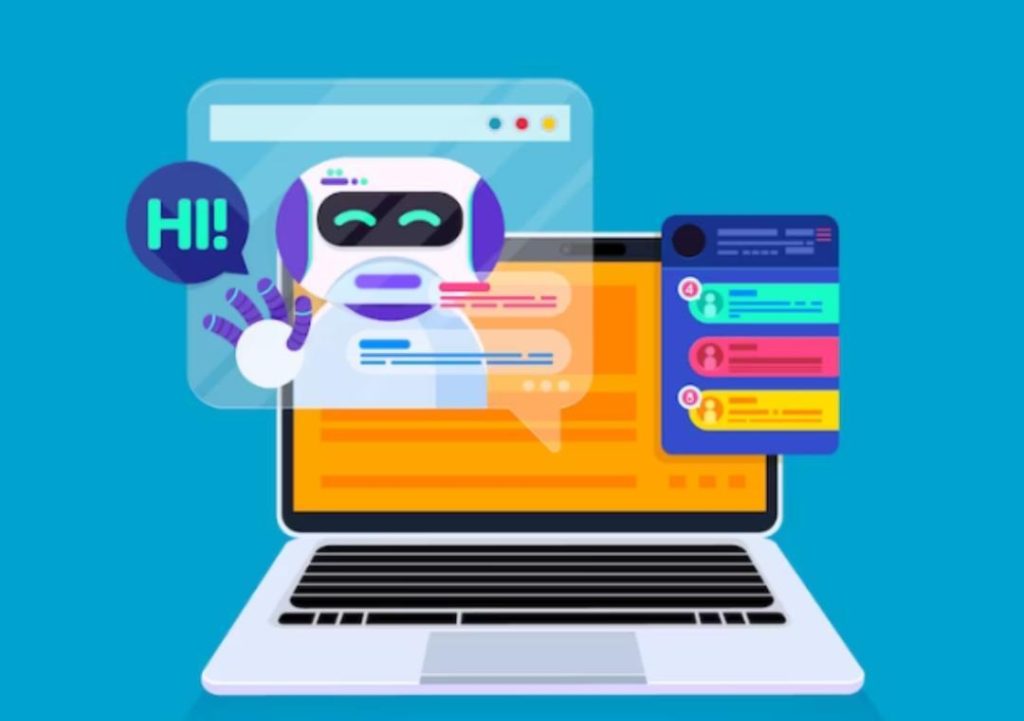
Virtual Assistants & Chatbots Power 24/7 eCommerce Support
In today’s fast-paced, always-connected world, customers expect instant gratification from the businesses they interact with. This is especially true in the world of eCommerce, where a delay in response time can mean the difference between a sale and a lost customer. To meet this demand, many online retailers are turning to virtual assistants and chatbots to power their customer support.
These AI-driven chatbots are revolutionizing the way businesses interact with their customers, providing 24/7 support that is both efficient and effective. From answering frequently asked questions (FAQs) to guiding buyers through the returns process, chatbots are equipped to handle a wide range of tasks, all while providing a seamless and personalized experience for the customer.
In this blog post, we’ll explore the benefits of using virtual assistants and chatbots in eCommerce support, and how they are transforming the way businesses interact with their customers.
The Evolution of Chatbots
Chatbots have been around for decades, but it wasn’t until the advent of artificial intelligence (AI) and natural language processing (NLP) that they truly became a game-changer for businesses. Early chatbots were limited in their capabilities, able only to respond to pre-programmed questions and phrases. However, with the development of AI and NLP, chatbots are now able to understand and respond to natural language, making them a valuable tool for businesses looking to improve their customer support.
Benefits of Chatbots in eCommerce Support
So, what makes chatbots so effective in eCommerce support? Here are just a few of the benefits:
- 24/7 Support: Chatbots are available 24 hours a day, 7 days a week, providing customers with instant support whenever they need it.
- Fast Response Times: Chatbots can respond to customer inquiries in seconds, far faster than human customer support agents.
- Consistent Answers: Chatbots provide consistent answers to customer questions, eliminating the risk of human error.
- Scalability: Chatbots can handle a high volume of customer inquiries simultaneously, making them ideal for businesses that experience a surge in traffic during holidays or promotions.
- Personalization: Chatbots can be programmed to recognize and respond to customer preferences, providing a personalized experience that human customer support agents may not be able to match.
How Chatbots Work
Chatbots work by leveraging AI and NLP to understand and respond to customer inquiries. Here’s a step-by-step breakdown of the process:
- Customer Inquiry: A customer sends a message or makes a query through the chatbot, either through a website, social media, or messaging app.
- Natural Language Processing: The chatbot uses NLP to understand the customer’s inquiry, identifying key words and phrases to determine the customer’s intent.
- Intent Identification: The chatbot identifies the customer’s intent, whether it’s to make a purchase, ask a question, or request support.
- Response Generation: The chatbot generates a response based on the customer’s intent, drawing from a database of pre-programmed answers and FAQs.
- Response Delivery: The chatbot delivers the response to the customer, either through text, voice, or visual responses.
Advanced Chatbot Features
In addition to the basic chatbot features, many modern chatbots are equipped with advanced features that enhance their capabilities. Some of these features include:
- Sentiment Analysis: Chatbots can analyze customer sentiment, recognizing when a customer is happy, upset, or frustrated.
- Contextual Understanding: Chatbots can understand the context of a customer’s inquiry, recognizing when a customer has asked a follow-up question or needs additional support.
- Intent-Based Routing: Chatbots can route customer inquiries to human customer support agents when necessary, ensuring that complex issues are handled by the right person.
- Multi-Channel Support: Chatbots can support multiple channels, including messaging apps, social media, and website chat.
Case Studies: Success Stories
Chatbots have been successfully implemented by numerous businesses across a range of industries. Here are a few case studies that demonstrate the effectiveness of chatbots in eCommerce support:
- Zappos: Zappos, an online shoe retailer, uses chatbots to handle customer inquiries, reducing the average response time by 90%.
- Domino’s Pizza: Domino’s Pizza uses chatbots to take orders and provide customer support, increasing sales by 15%.
- American Express: American Express uses chatbots to provide customer support, reducing the average response time by 80%.
Conclusion
Virtual assistants and chatbots are revolutionizing the way businesses interact with their customers, providing 24/7 support that is both efficient and effective. With their ability to understand natural language, recognize sentiment, and provide personalized responses, chatbots are the perfect solution for businesses looking to improve their customer support.
As the technology continues to evolve, we can expect to see even more advanced features and capabilities emerge. But for now, chatbots are a game-changer for businesses looking to stay ahead of the curve and provide their customers with the best possible experience.
News Source:






